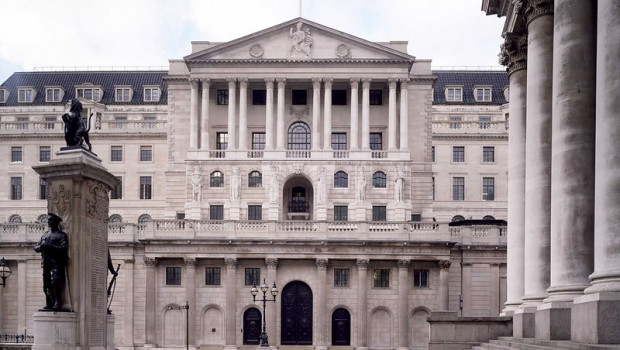Mortgage approvals unexpectedly jump in December - BoE

Mortgage approvals jumped in December, data from the Bank of England showed on Tuesday, beating expectations.
According the central bank’s latest Money and Credit report, there were 71,015 approvals for house purchases in December, up from 67,859 a month earlier. Most analysts were expecting a slight fall, to around 65,900.
Net borrowing of mortgage debt by individuals was £3.6bn, down slightly on November’s £3.8bn, while gross lending fell to £21.7bn from £22.4bn month-on-month.
Samuel Tombs, chief UK economist at Pantheon Macroeconomics, said the unexpected jump in mortgage approvals "underlines that housing demand has remained strong.
"Nonetheless, the combination of rising mortgage rates, falling disposable incomes and low consumer confidence historically has depressed housing market activity, and greatly weighed on house price growth."
Martin Beck, chief economic advisor to the EY Item Club, said: “The rise in prices over the past year has stretched affordability, bringing both mortgage approvals and net mortgage lending back to the levels seen immediately before the pandemic. With multiple interest rate hikes set to push up debt servicing costs through 2022, the EY Item Club expects house price growth to cool.”
Away from mortgage debt, the BoE said individuals had borrowed an additional £0.8bn in consumer credit in December, also above consensus, for £0.6bn. The borrowing was split evenly between credit cards and other forms of personal credit, such as personal loans or car dealership finance.
At the same time, households’ total liquid assets - which comprises bank and building society deposits alongside any cash held in National Savings & Investments accounts - rose £3.2bn in December, below the average for the previous six months of £7.9bn.
Tombs said the rise was "smaller that the £4.9bn average increase seen in the two years prior to the pandemic, implying that households have begun to draw down their excess savings.
"We judge that this reflects households' attempts to support their current level of expenditure while their real disposable incomes are being battered by high inflation, rather than a positive shift in consumer sentiment.
"We expect households’ real spending to grow at a fairly subdued 0.6% average quarter-on-quarter rate this year."
Tuesday’s Money and Credit report coincides with the latest Nationwide House Price Index, which showed the UK property market had the strongest start to the year since 2005.